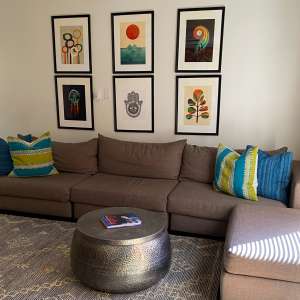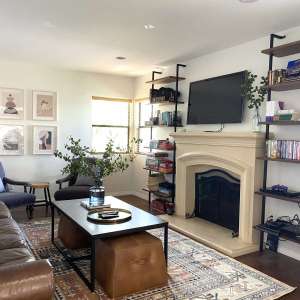Our Santa Monica treatment center offers an extended care program aimed at providing a safe and comfortable environment for adolescents with mental health disorders. At Visions Treatment Centers, we develop extended care programs providing teens with structure and self-reliance, all while focusing on a holistic treatment approach addressing each teen’s symptoms and long-term struggles. Our extended care program requires a minimum length-of-stay of 90 days and includes a thorough transition from treatment into normal living through individual therapy and peer interaction, with cooperation with friends, family, and the community.
Bridging the Transitional Care Gap From Treatment to Recovery
At Visions Treatment Centers, we find a teen-oriented and holistic approach works best for young adults. Through our programs, we aim to provide parents and teens with a variety of different treatment program environments for them to feel safe and at-home. Treatment at our extended care facilities centers around helping teens learn to put their newfound habits and coping skills to use in everyday context after primary intervention.
We continue to provide individual and group therapy and rely on specific modalities to help teens with a variety of diagnoses and circumstances. Some of these modalities include dialectical behavior therapy (DBT), which focuses on emotional and behavioral responses in social contexts, and cognitive-behavioral therapy (CBT), which helps teens learn to manage their thoughts through their actions.
Peer experiences are important, which is why our extended care program features frequent outdoor education experiences. Many of our patients are still in school, and academic assistance is a crucial part of our extended care program. By working with each teen’s school to determine and set an academic schedule around their current curriculum, we help to ensure patients’ learning and education continuum while in our care. Our day school features a fully accredited curriculum, and we ensure teens living at Visions aren’t left behind.
OUR ASSESSMENT IS FREE, REQUEST A CALL TODAY
A Community-Based Extended Care Program and Environment
Our Santa Monica extended care program is a sizeable 2600+ sq. ft. home within a residential area. This 6-bed facility will be a temporary home for teens currently struggling with symptoms of anxiety, depression, OCD, and other mental health issues. Visions’ extended care facilities take an evidence-based, individualized approach to treatment, identifying a plan and path that help teens best transition from residential care into normal living conditions.
With a strong focus on academics, social interaction, clinically-proven techniques and modalities to ensure the continuum of care, we also work with teens, their parents, teachers, and their medical teams to determine the best path forward after treatment, through support groups, an individualized exit plan, and referrals to reputable local resources for long-term healthcare.
Call us today at 866-889-3665. Consultations and assessments are free of charge.















